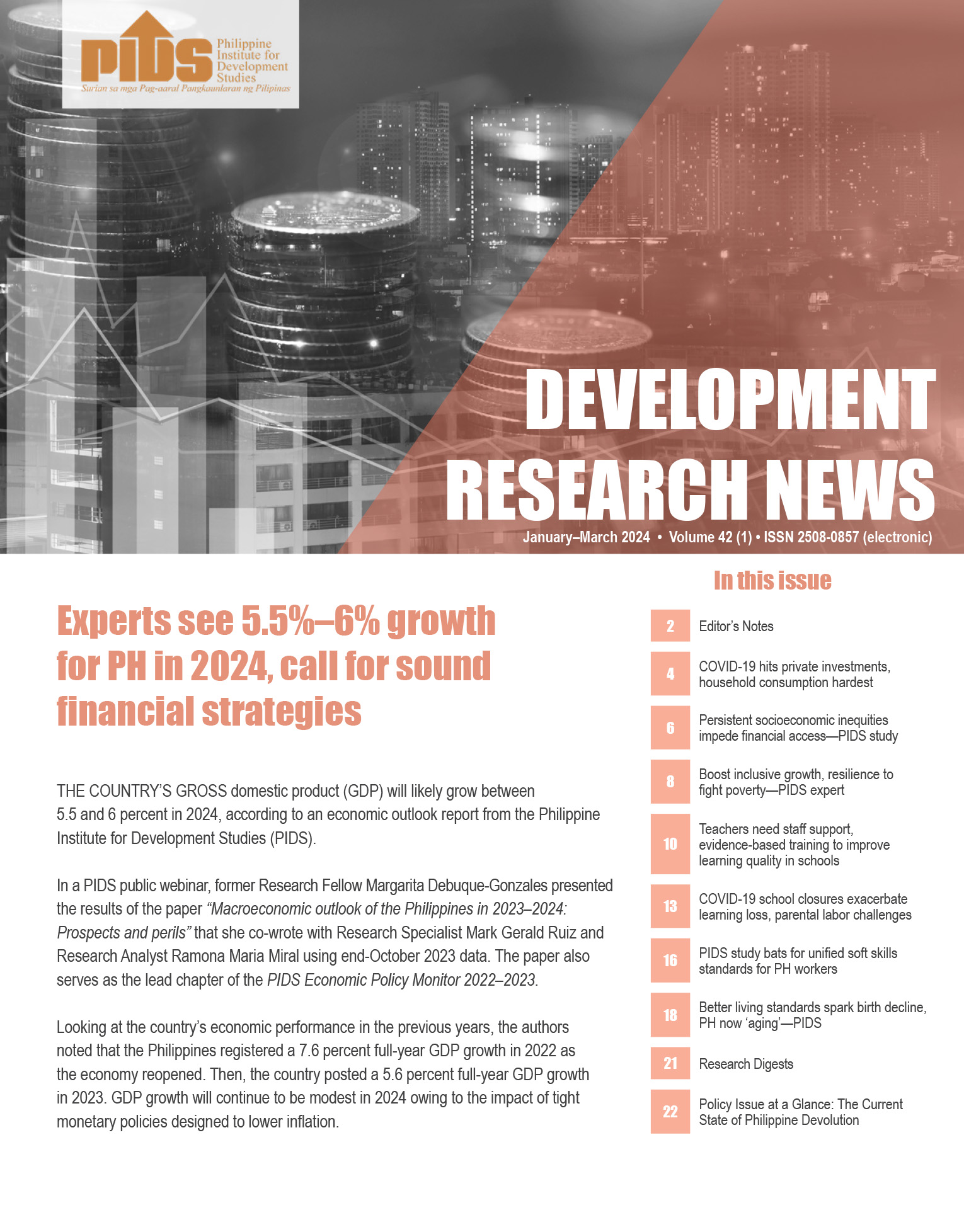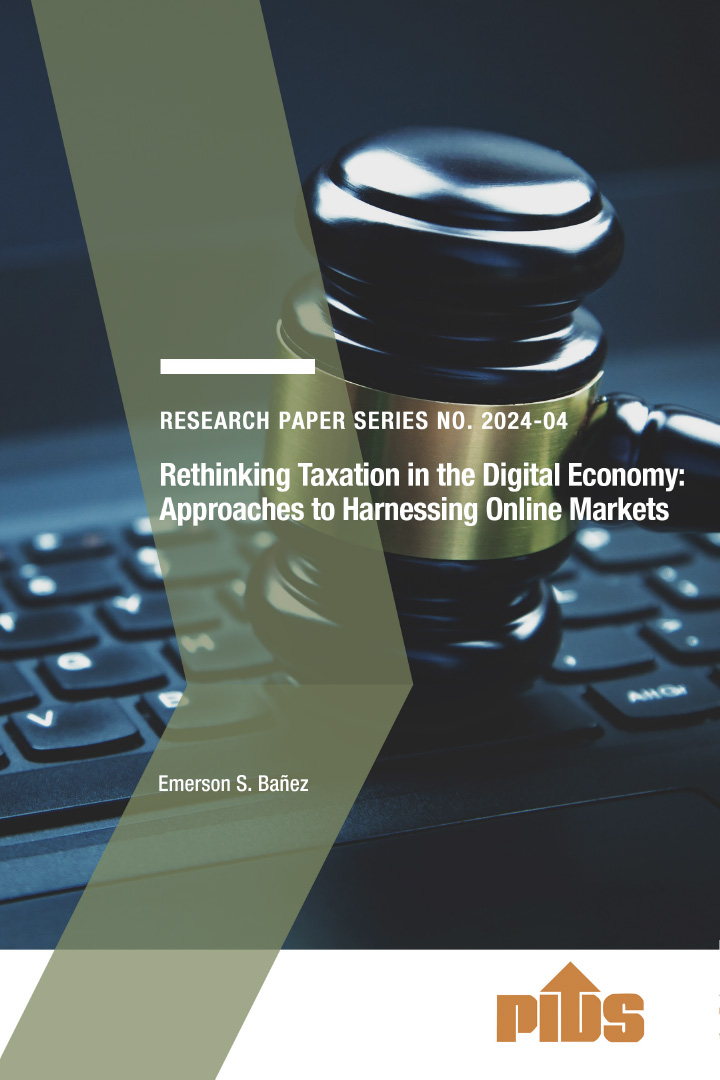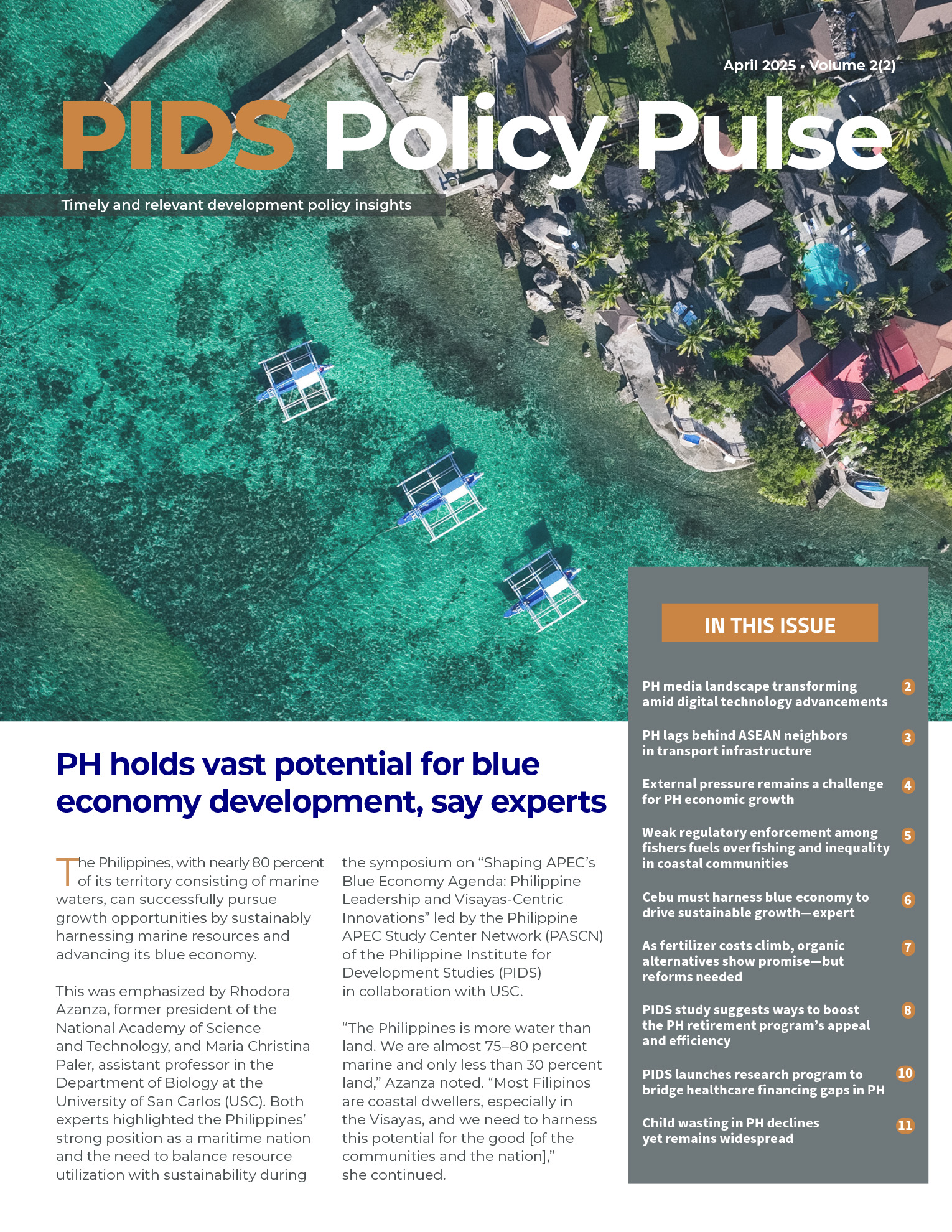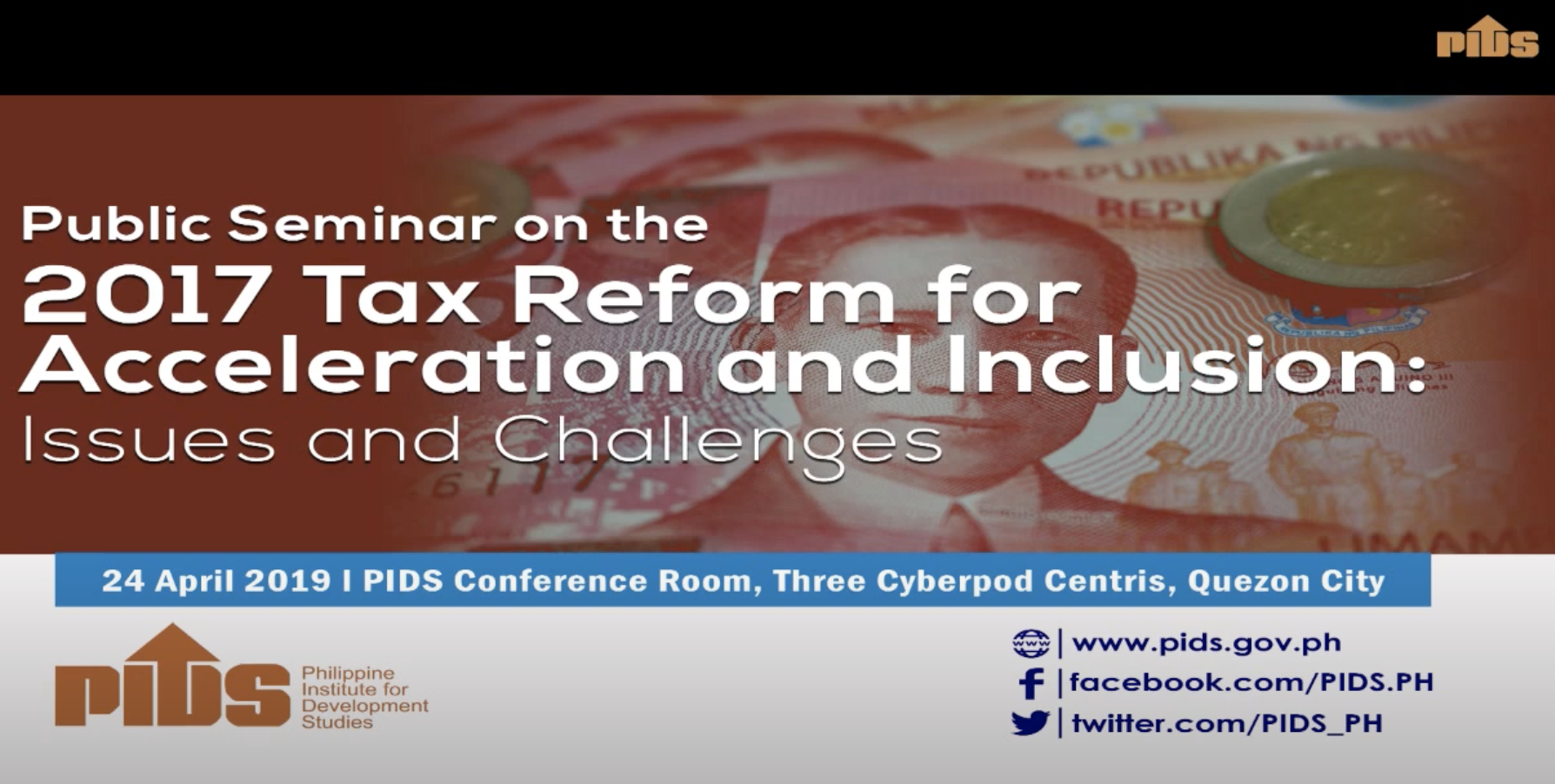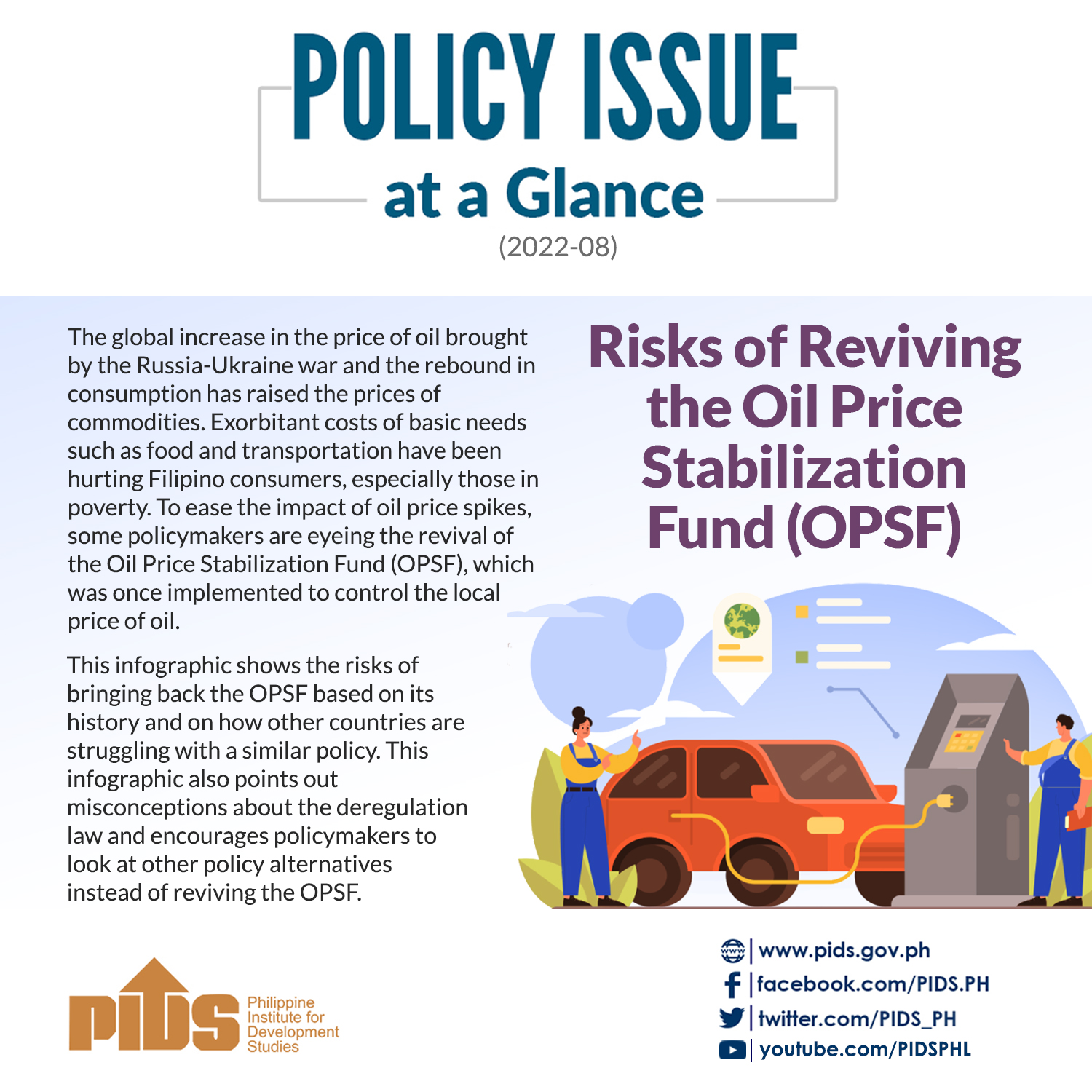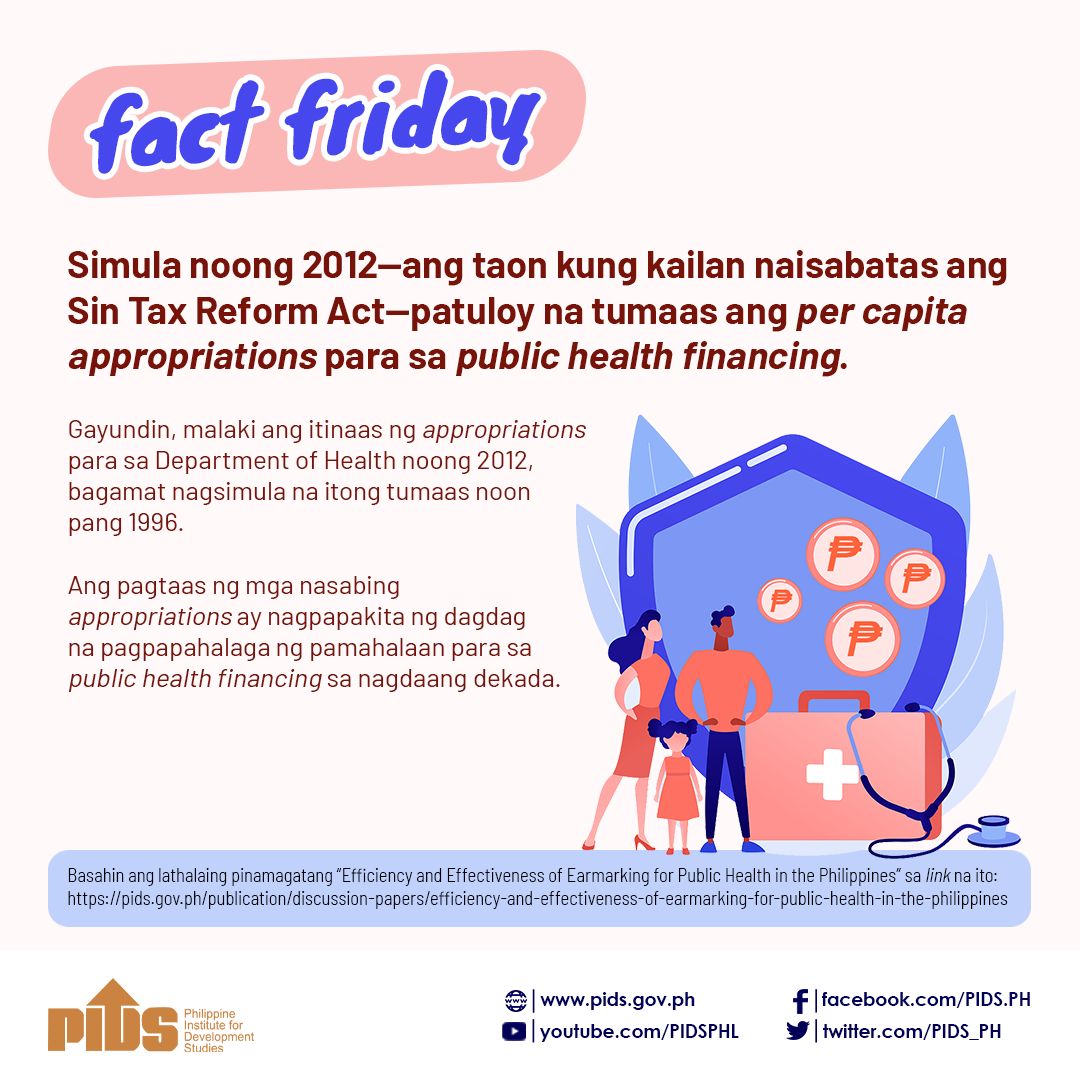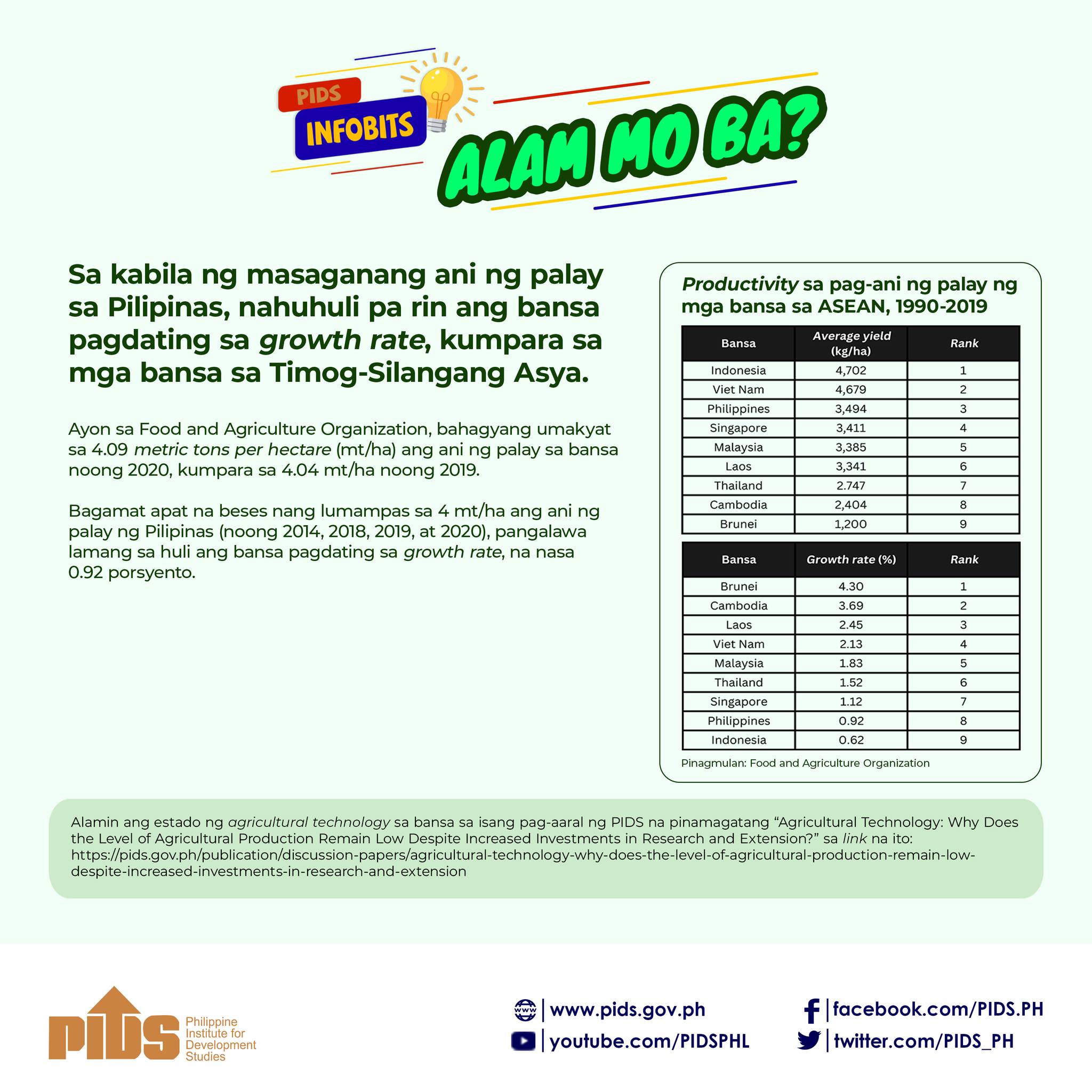LOCAL economists are urging the President’s economic team to consider the suspension of taxes on oil and wheat imports to cushion the impact of hostilities in Eastern Europe on consumers.
Also on Thursday, the Cabinet-level Development Budget Coordination Committee (DBCC) said the government stands ready to provide a total of P3 billion in fuel subsidies and discounts to cushion the impact of rising oil prices on the transport sector, farmers and fisherfolk.
The Philippines imposes excise taxes on fuel imports under the Tax Reform for Acceleration and Inclusion (TRAIN) Act of 2017. In 2020, tax rates for petroleum products ranged from P3 to P10 per liter.
While tariffs for milling wheat imports are at zero, these products are slapped with a 12-percent value added tax (VAT) on the subsequent flour sales, payable at the time the wheat is imported. Feed-wheat imports are subject to a 7-percent Most Favored Nation (MFN) duty and are not subject to VAT while wheat flour imports are levied a 7-percent MFN tariff.
“If the price spike is temporary, policy makers can sit tight and grind it out until prices fall. If the price spike is sustained then the government, as a temporary measure, may want to consider lowering taxes on oil products,” former Tariff Commissioner George Manzano told BusinessMirror.
“To partially dampen the price spikes, the government can study if temporarily suspending tariffs on wheat imports is feasible given the fiscal situation. Bakeries and the confectionery industry will be hit as their raw material cost will escalate,” he also said.
In a statement released on Thursday, the DBCC said benchmark Dubai crude oil price for this year is projected to average USD 83.3 per barrel, citing the latest assessment of the Bangko Sentral ng Pilipinas as of February 17 this year.
However, it said this is expected to decelerate to $79.0 by the end of this year based on the latest oil futures.
For the first time since 2014, global benchmark Brent crude oil on Thursday topped $100 per barrel after Russia attacked Ukraine, based on international reports.
Meanwhile, Dubai crude is around $91 per barrel, as of press time.
The BusinessMirror on Tuesday first reported that oil-importing countries like the Philippines could see a spike in local pump prices and various commodities in light of the situation in Eastern Europe. (Story here: https://businessmirror.com.ph/2022/02/22/war-fueled-oil-price-inflation-impact-eyed/)
Supply shock
Tariff commission chief Manzano said Brent crude oil prices breaching $100 per barrel would lead to a supply shock in the oil market. The end of the oil price rally would largely depend on the resolution of the hostilities.
He said the Organization of the Petroleum Exporting Countries (Opec), which includes Saudi Arabia, could also help ease the impact of high oil prices if they decide to increase oil production. But only the resolution of the crisis in Europe would keep prices spikes at bay.
Given this, there is little that net-oil importers like the Philippines can do to stem the increase in oil prices. It can, however, help cushion the impact by temporarily lowering tariffs and, for the long-term, promote technologies that rely less on oil as fuel.
“It is important to determine whether the spike will be sustained or not. If the Ukraine-Russia conflict is resolved quickly this would be reflected in a lowering of oil prices. If, on the other hand, the conflict is prolonged, then there will be continuous high prices,” Manzano said.
Ateneo de Manila University John Gokongwei School of Management Dean Luis F. Dumlao said, meanwhile, that adjusting excise taxes can be done by the economic team as this is part of the provisions of the Train Law.
Under the Train Law, the government can suspend excise taxes “if the three month average exceeds $80 per barrel. There are also provisions to subsidize transport groups,” Dumlao pointed out.
BPI Chief Economist Emilio S. Neri Jr. agreed and said these measures, however, will lead to foregone revenues which will make the goal of fiscal consolidation even more challenging. “No free lunch as always.”
Wheat
Dumlao said the increase in wheat prices would be significant. He estimated that wheat and bread has a 2.5-percent weight in the Consumer Price Index (CPI). Should this increase by 50 percent, inflation could increase by as much as 1.25 percentage point.
The Philippine Statistics Authority (PSA) told BusinessMirror that, based on the 2018-based CPI, bread has a 1.8-percent weight in the national CPI. Flour wheat has a weight of 0.06 percent in the nationwide CPI.
In Manzano’s view, the situation in Ukraine is crucial because the European country is the Philippines’s third most important source of wheat imports as of 2020. It accounted for 9.1 percent of total imports of wheat/meslin. Russia is the largest exporter of wheat/meslin.
He also noted that the Philippines does not produce wheat and the current crisis will be an “import sourcing challenge” for the country and by other countries, leading to a spike in prices. Ukraine is considered the fifth largest exporter of wheat/meslin in the world as of 2020.
“Because wheat production is agro-based, and one cannot simply ramp up acreage and production, there could be spike in demand as importers of wheat try to secure or outbid each other just to secure their supplies,” Manzano explained.
Nonetheless, Manzano and Philippine Institute for Development Studies (PIDS) Senior Research Fellow Roehlano Briones remained confident the Philippines can still source wheat from other importers globally. The United States remains a major source of wheat for the Philippines.
Ateneo Center for Research and Development (ACERD) Associate Director Ser Percival K. Peña-Reyes said the country may still be able to source wheat from immediate neighbors to augment supply issues.
Subsidies, long-term
The current situation that the Philippines finds itself in would require the government to again dip into its shallow pockets to provide subsidies for those directly affected by high oil prices, notably the public transportation sector.
Former Socioeconomic Planning Secretary Cielito F. Habito said the higher costs, particularly that of oil, will swell prices of farm products using fertilizers. This means, he said, more expensive food items.
“At best, government can give targeted food subsidies to the poor, but like it or not, non-poor consumers would have to bear the brunt of this supply side cost-push inflation,” Habito said.
Ateneo Eagle Watch Senior Fellow Leonardo A. Lanzona Jr. agreed and told BusinessMirror that, given the extent of the impact of the hostilities in Eastern Europe, the government must extend cash transfers to households as they will also suffer the brunt of the increase in fuel and food prices.
“The short-term response is to offer cash transfers to poor households. But we need to plan in the long term especially because this situation might extend indefinitely. A comprehensive plan of securing food and other necessities will be needed,” Lanzona said.
Unionbank Chief Economist Ruben Carlo O. Asuncion thinks that whatever the response of the government, these have to be well-thought of and precise. In fact, since the tensions in Eastern Europe have been brewing for some time, the government should already have thought through scenarios in an escalation of conflict.
Asuncion only hoped that affected producers are ready to implement their “responses to prevent any production disruptions and/or any event that may ail the regular production times.”
He said the “prices of these products are, of course, vulnerable to what is happening in Ukraine. (I) hope producers will adjust to prevent potential hike in goods’ prices.”
On Thursday, the Associated Press reported that Russian troops launched their anticipated attack on Ukraine as President Vladimir Putin cast aside international condemnation and sanctions, and warned other countries that any attempt to interfere would lead to “consequences you have never seen.”
Big explosions were heard before dawn in Kyiv, Kharkiv and Odesa as world leaders decried the start of an invasion that could cause massive casualties and topple Ukraine’s democratically elected government.
Ukrainian President Volodymyr Zelenskyy declared martial law, saying Russia has targeted Ukraine’s military infrastructure. He urged Ukrainians to stay home and not to panic.
President Joe Biden pledged new sanctions to punish Russia for the aggression that the international community had expected for weeks but could not prevent through diplomacy.
LOCAL economists are urging the President’s economic team to consider the suspension of taxes on oil and wheat imports to cushion the impact of hostilities in Eastern Europe on consumers.
Also on Thursday, the Cabinet-level Development Budget Coordination Committee (DBCC) said the government stands ready to provide a total of P3 billion in fuel subsidies and discounts to cushion the impact of rising oil prices on the transport sector, farmers and fisherfolk.
The Philippines imposes excise taxes on fuel imports under the Tax Reform for Acceleration and Inclusion (TRAIN) Act of 2017. In 2020, tax rates for petroleum products ranged from P3 to P10 per liter.
While tariffs for milling wheat imports are at zero, these products are slapped with a 12-percent value added tax (VAT) on the subsequent flour sales, payable at the time the wheat is imported. Feed-wheat imports are subject to a 7-percent Most Favored Nation (MFN) duty and are not subject to VAT while wheat flour imports are levied a 7-percent MFN tariff.
“If the price spike is temporary, policy makers can sit tight and grind it out until prices fall. If the price spike is sustained then the government, as a temporary measure, may want to consider lowering taxes on oil products,” former Tariff Commissioner George Manzano told BusinessMirror.
“To partially dampen the price spikes, the government can study if temporarily suspending tariffs on wheat imports is feasible given the fiscal situation. Bakeries and the confectionery industry will be hit as their raw material cost will escalate,” he also said.
In a statement released on Thursday, the DBCC said benchmark Dubai crude oil price for this year is projected to average USD 83.3 per barrel, citing the latest assessment of the Bangko Sentral ng Pilipinas as of February 17 this year.
However, it said this is expected to decelerate to $79.0 by the end of this year based on the latest oil futures.
For the first time since 2014, global benchmark Brent crude oil on Thursday topped $100 per barrel after Russia attacked Ukraine, based on international reports.
Meanwhile, Dubai crude is around $91 per barrel, as of press time.
The BusinessMirror on Tuesday first reported that oil-importing countries like the Philippines could see a spike in local pump prices and various commodities in light of the situation in Eastern Europe. (Story here: https://businessmirror.com.ph/2022/02/22/war-fueled-oil-price-inflation-impact-eyed/)
Supply shock
Tariff commission chief Manzano said Brent crude oil prices breaching $100 per barrel would lead to a supply shock in the oil market. The end of the oil price rally would largely depend on the resolution of the hostilities.
He said the Organization of the Petroleum Exporting Countries (Opec), which includes Saudi Arabia, could also help ease the impact of high oil prices if they decide to increase oil production. But only the resolution of the crisis in Europe would keep prices spikes at bay.
Given this, there is little that net-oil importers like the Philippines can do to stem the increase in oil prices. It can, however, help cushion the impact by temporarily lowering tariffs and, for the long-term, promote technologies that rely less on oil as fuel.
“It is important to determine whether the spike will be sustained or not. If the Ukraine-Russia conflict is resolved quickly this would be reflected in a lowering of oil prices. If, on the other hand, the conflict is prolonged, then there will be continuous high prices,” Manzano said.
Ateneo de Manila University John Gokongwei School of Management Dean Luis F. Dumlao said, meanwhile, that adjusting excise taxes can be done by the economic team as this is part of the provisions of the Train Law.
Under the Train Law, the government can suspend excise taxes “if the three month average exceeds $80 per barrel. There are also provisions to subsidize transport groups,” Dumlao pointed out.
BPI Chief Economist Emilio S. Neri Jr. agreed and said these measures, however, will lead to foregone revenues which will make the goal of fiscal consolidation even more challenging. “No free lunch as always.”
Wheat
Dumlao said the increase in wheat prices would be significant. He estimated that wheat and bread has a 2.5-percent weight in the Consumer Price Index (CPI). Should this increase by 50 percent, inflation could increase by as much as 1.25 percentage point.
The Philippine Statistics Authority (PSA) told BusinessMirror that, based on the 2018-based CPI, bread has a 1.8-percent weight in the national CPI. Flour wheat has a weight of 0.06 percent in the nationwide CPI.
In Manzano’s view, the situation in Ukraine is crucial because the European country is the Philippines’s third most important source of wheat imports as of 2020. It accounted for 9.1 percent of total imports of wheat/meslin. Russia is the largest exporter of wheat/meslin.
He also noted that the Philippines does not produce wheat and the current crisis will be an “import sourcing challenge” for the country and by other countries, leading to a spike in prices. Ukraine is considered the fifth largest exporter of wheat/meslin in the world as of 2020.
“Because wheat production is agro-based, and one cannot simply ramp up acreage and production, there could be spike in demand as importers of wheat try to secure or outbid each other just to secure their supplies,” Manzano explained.
Nonetheless, Manzano and Philippine Institute for Development Studies (PIDS) Senior Research Fellow Roehlano Briones remained confident the Philippines can still source wheat from other importers globally. The United States remains a major source of wheat for the Philippines.
Ateneo Center for Research and Development (ACERD) Associate Director Ser Percival K. Peña-Reyes said the country may still be able to source wheat from immediate neighbors to augment supply issues.
Subsidies, long-term
The current situation that the Philippines finds itself in would require the government to again dip into its shallow pockets to provide subsidies for those directly affected by high oil prices, notably the public transportation sector.
Former Socioeconomic Planning Secretary Cielito F. Habito said the higher costs, particularly that of oil, will swell prices of farm products using fertilizers. This means, he said, more expensive food items.
“At best, government can give targeted food subsidies to the poor, but like it or not, non-poor consumers would have to bear the brunt of this supply side cost-push inflation,” Habito said.
Ateneo Eagle Watch Senior Fellow Leonardo A. Lanzona Jr. agreed and told BusinessMirror that, given the extent of the impact of the hostilities in Eastern Europe, the government must extend cash transfers to households as they will also suffer the brunt of the increase in fuel and food prices.
“The short-term response is to offer cash transfers to poor households. But we need to plan in the long term especially because this situation might extend indefinitely. A comprehensive plan of securing food and other necessities will be needed,” Lanzona said.
Unionbank Chief Economist Ruben Carlo O. Asuncion thinks that whatever the response of the government, these have to be well-thought of and precise. In fact, since the tensions in Eastern Europe have been brewing for some time, the government should already have thought through scenarios in an escalation of conflict.
Asuncion only hoped that affected producers are ready to implement their “responses to prevent any production disruptions and/or any event that may ail the regular production times.”
He said the “prices of these products are, of course, vulnerable to what is happening in Ukraine. (I) hope producers will adjust to prevent potential hike in goods’ prices.”
On Thursday, the Associated Press reported that Russian troops launched their anticipated attack on Ukraine as President Vladimir Putin cast aside international condemnation and sanctions, and warned other countries that any attempt to interfere would lead to “consequences you have never seen.”
Big explosions were heard before dawn in Kyiv, Kharkiv and Odesa as world leaders decried the start of an invasion that could cause massive casualties and topple Ukraine’s democratically elected government.
Ukrainian President Volodymyr Zelenskyy declared martial law, saying Russia has targeted Ukraine’s military infrastructure. He urged Ukrainians to stay home and not to panic.
President Joe Biden pledged new sanctions to punish Russia for the aggression that the international community had expected for weeks but could not prevent through diplomacy.
Also on Thursday, the Cabinet-level Development Budget Coordination Committee (DBCC) said the government stands ready to provide a total of P3 billion in fuel subsidies and discounts to cushion the impact of rising oil prices on the transport sector, farmers and fisherfolk.
The Philippines imposes excise taxes on fuel imports under the Tax Reform for Acceleration and Inclusion (TRAIN) Act of 2017. In 2020, tax rates for petroleum products ranged from P3 to P10 per liter.
While tariffs for milling wheat imports are at zero, these products are slapped with a 12-percent value added tax (VAT) on the subsequent flour sales, payable at the time the wheat is imported. Feed-wheat imports are subject to a 7-percent Most Favored Nation (MFN) duty and are not subject to VAT while wheat flour imports are levied a 7-percent MFN tariff.
“If the price spike is temporary, policy makers can sit tight and grind it out until prices fall. If the price spike is sustained then the government, as a temporary measure, may want to consider lowering taxes on oil products,” former Tariff Commissioner George Manzano told BusinessMirror.
“To partially dampen the price spikes, the government can study if temporarily suspending tariffs on wheat imports is feasible given the fiscal situation. Bakeries and the confectionery industry will be hit as their raw material cost will escalate,” he also said.
In a statement released on Thursday, the DBCC said benchmark Dubai crude oil price for this year is projected to average USD 83.3 per barrel, citing the latest assessment of the Bangko Sentral ng Pilipinas as of February 17 this year.
However, it said this is expected to decelerate to $79.0 by the end of this year based on the latest oil futures.
For the first time since 2014, global benchmark Brent crude oil on Thursday topped $100 per barrel after Russia attacked Ukraine, based on international reports.
Meanwhile, Dubai crude is around $91 per barrel, as of press time.
The BusinessMirror on Tuesday first reported that oil-importing countries like the Philippines could see a spike in local pump prices and various commodities in light of the situation in Eastern Europe. (Story here: https://businessmirror.com.ph/2022/02/22/war-fueled-oil-price-inflation-impact-eyed/)
Supply shock
Tariff commission chief Manzano said Brent crude oil prices breaching $100 per barrel would lead to a supply shock in the oil market. The end of the oil price rally would largely depend on the resolution of the hostilities.
He said the Organization of the Petroleum Exporting Countries (Opec), which includes Saudi Arabia, could also help ease the impact of high oil prices if they decide to increase oil production. But only the resolution of the crisis in Europe would keep prices spikes at bay.
Given this, there is little that net-oil importers like the Philippines can do to stem the increase in oil prices. It can, however, help cushion the impact by temporarily lowering tariffs and, for the long-term, promote technologies that rely less on oil as fuel.
“It is important to determine whether the spike will be sustained or not. If the Ukraine-Russia conflict is resolved quickly this would be reflected in a lowering of oil prices. If, on the other hand, the conflict is prolonged, then there will be continuous high prices,” Manzano said.
Ateneo de Manila University John Gokongwei School of Management Dean Luis F. Dumlao said, meanwhile, that adjusting excise taxes can be done by the economic team as this is part of the provisions of the Train Law.
Under the Train Law, the government can suspend excise taxes “if the three month average exceeds $80 per barrel. There are also provisions to subsidize transport groups,” Dumlao pointed out.
BPI Chief Economist Emilio S. Neri Jr. agreed and said these measures, however, will lead to foregone revenues which will make the goal of fiscal consolidation even more challenging. “No free lunch as always.”
Wheat
Dumlao said the increase in wheat prices would be significant. He estimated that wheat and bread has a 2.5-percent weight in the Consumer Price Index (CPI). Should this increase by 50 percent, inflation could increase by as much as 1.25 percentage point.
The Philippine Statistics Authority (PSA) told BusinessMirror that, based on the 2018-based CPI, bread has a 1.8-percent weight in the national CPI. Flour wheat has a weight of 0.06 percent in the nationwide CPI.
In Manzano’s view, the situation in Ukraine is crucial because the European country is the Philippines’s third most important source of wheat imports as of 2020. It accounted for 9.1 percent of total imports of wheat/meslin. Russia is the largest exporter of wheat/meslin.
He also noted that the Philippines does not produce wheat and the current crisis will be an “import sourcing challenge” for the country and by other countries, leading to a spike in prices. Ukraine is considered the fifth largest exporter of wheat/meslin in the world as of 2020.
“Because wheat production is agro-based, and one cannot simply ramp up acreage and production, there could be spike in demand as importers of wheat try to secure or outbid each other just to secure their supplies,” Manzano explained.
Nonetheless, Manzano and Philippine Institute for Development Studies (PIDS) Senior Research Fellow Roehlano Briones remained confident the Philippines can still source wheat from other importers globally. The United States remains a major source of wheat for the Philippines.
Ateneo Center for Research and Development (ACERD) Associate Director Ser Percival K. Peña-Reyes said the country may still be able to source wheat from immediate neighbors to augment supply issues.
Subsidies, long-term
The current situation that the Philippines finds itself in would require the government to again dip into its shallow pockets to provide subsidies for those directly affected by high oil prices, notably the public transportation sector.
Former Socioeconomic Planning Secretary Cielito F. Habito said the higher costs, particularly that of oil, will swell prices of farm products using fertilizers. This means, he said, more expensive food items.
“At best, government can give targeted food subsidies to the poor, but like it or not, non-poor consumers would have to bear the brunt of this supply side cost-push inflation,” Habito said.
Ateneo Eagle Watch Senior Fellow Leonardo A. Lanzona Jr. agreed and told BusinessMirror that, given the extent of the impact of the hostilities in Eastern Europe, the government must extend cash transfers to households as they will also suffer the brunt of the increase in fuel and food prices.
“The short-term response is to offer cash transfers to poor households. But we need to plan in the long term especially because this situation might extend indefinitely. A comprehensive plan of securing food and other necessities will be needed,” Lanzona said.
Unionbank Chief Economist Ruben Carlo O. Asuncion thinks that whatever the response of the government, these have to be well-thought of and precise. In fact, since the tensions in Eastern Europe have been brewing for some time, the government should already have thought through scenarios in an escalation of conflict.
Asuncion only hoped that affected producers are ready to implement their “responses to prevent any production disruptions and/or any event that may ail the regular production times.”
He said the “prices of these products are, of course, vulnerable to what is happening in Ukraine. (I) hope producers will adjust to prevent potential hike in goods’ prices.”
On Thursday, the Associated Press reported that Russian troops launched their anticipated attack on Ukraine as President Vladimir Putin cast aside international condemnation and sanctions, and warned other countries that any attempt to interfere would lead to “consequences you have never seen.”
Big explosions were heard before dawn in Kyiv, Kharkiv and Odesa as world leaders decried the start of an invasion that could cause massive casualties and topple Ukraine’s democratically elected government.
Ukrainian President Volodymyr Zelenskyy declared martial law, saying Russia has targeted Ukraine’s military infrastructure. He urged Ukrainians to stay home and not to panic.
President Joe Biden pledged new sanctions to punish Russia for the aggression that the international community had expected for weeks but could not prevent through diplomacy.
LOCAL economists are urging the President’s economic team to consider the suspension of taxes on oil and wheat imports to cushion the impact of hostilities in Eastern Europe on consumers.
Also on Thursday, the Cabinet-level Development Budget Coordination Committee (DBCC) said the government stands ready to provide a total of P3 billion in fuel subsidies and discounts to cushion the impact of rising oil prices on the transport sector, farmers and fisherfolk.
The Philippines imposes excise taxes on fuel imports under the Tax Reform for Acceleration and Inclusion (TRAIN) Act of 2017. In 2020, tax rates for petroleum products ranged from P3 to P10 per liter.
While tariffs for milling wheat imports are at zero, these products are slapped with a 12-percent value added tax (VAT) on the subsequent flour sales, payable at the time the wheat is imported. Feed-wheat imports are subject to a 7-percent Most Favored Nation (MFN) duty and are not subject to VAT while wheat flour imports are levied a 7-percent MFN tariff.
“If the price spike is temporary, policy makers can sit tight and grind it out until prices fall. If the price spike is sustained then the government, as a temporary measure, may want to consider lowering taxes on oil products,” former Tariff Commissioner George Manzano told BusinessMirror.
“To partially dampen the price spikes, the government can study if temporarily suspending tariffs on wheat imports is feasible given the fiscal situation. Bakeries and the confectionery industry will be hit as their raw material cost will escalate,” he also said.
In a statement released on Thursday, the DBCC said benchmark Dubai crude oil price for this year is projected to average USD 83.3 per barrel, citing the latest assessment of the Bangko Sentral ng Pilipinas as of February 17 this year.
However, it said this is expected to decelerate to $79.0 by the end of this year based on the latest oil futures.
For the first time since 2014, global benchmark Brent crude oil on Thursday topped $100 per barrel after Russia attacked Ukraine, based on international reports.
Meanwhile, Dubai crude is around $91 per barrel, as of press time.
The BusinessMirror on Tuesday first reported that oil-importing countries like the Philippines could see a spike in local pump prices and various commodities in light of the situation in Eastern Europe. (Story here: https://businessmirror.com.ph/2022/02/22/war-fueled-oil-price-inflation-impact-eyed/)
Supply shock
Tariff commission chief Manzano said Brent crude oil prices breaching $100 per barrel would lead to a supply shock in the oil market. The end of the oil price rally would largely depend on the resolution of the hostilities.
He said the Organization of the Petroleum Exporting Countries (Opec), which includes Saudi Arabia, could also help ease the impact of high oil prices if they decide to increase oil production. But only the resolution of the crisis in Europe would keep prices spikes at bay.
Given this, there is little that net-oil importers like the Philippines can do to stem the increase in oil prices. It can, however, help cushion the impact by temporarily lowering tariffs and, for the long-term, promote technologies that rely less on oil as fuel.
“It is important to determine whether the spike will be sustained or not. If the Ukraine-Russia conflict is resolved quickly this would be reflected in a lowering of oil prices. If, on the other hand, the conflict is prolonged, then there will be continuous high prices,” Manzano said.
Ateneo de Manila University John Gokongwei School of Management Dean Luis F. Dumlao said, meanwhile, that adjusting excise taxes can be done by the economic team as this is part of the provisions of the Train Law.
Under the Train Law, the government can suspend excise taxes “if the three month average exceeds $80 per barrel. There are also provisions to subsidize transport groups,” Dumlao pointed out.
BPI Chief Economist Emilio S. Neri Jr. agreed and said these measures, however, will lead to foregone revenues which will make the goal of fiscal consolidation even more challenging. “No free lunch as always.”
Wheat
Dumlao said the increase in wheat prices would be significant. He estimated that wheat and bread has a 2.5-percent weight in the Consumer Price Index (CPI). Should this increase by 50 percent, inflation could increase by as much as 1.25 percentage point.
The Philippine Statistics Authority (PSA) told BusinessMirror that, based on the 2018-based CPI, bread has a 1.8-percent weight in the national CPI. Flour wheat has a weight of 0.06 percent in the nationwide CPI.
In Manzano’s view, the situation in Ukraine is crucial because the European country is the Philippines’s third most important source of wheat imports as of 2020. It accounted for 9.1 percent of total imports of wheat/meslin. Russia is the largest exporter of wheat/meslin.
He also noted that the Philippines does not produce wheat and the current crisis will be an “import sourcing challenge” for the country and by other countries, leading to a spike in prices. Ukraine is considered the fifth largest exporter of wheat/meslin in the world as of 2020.
“Because wheat production is agro-based, and one cannot simply ramp up acreage and production, there could be spike in demand as importers of wheat try to secure or outbid each other just to secure their supplies,” Manzano explained.
Nonetheless, Manzano and Philippine Institute for Development Studies (PIDS) Senior Research Fellow Roehlano Briones remained confident the Philippines can still source wheat from other importers globally. The United States remains a major source of wheat for the Philippines.
Ateneo Center for Research and Development (ACERD) Associate Director Ser Percival K. Peña-Reyes said the country may still be able to source wheat from immediate neighbors to augment supply issues.
Subsidies, long-term
The current situation that the Philippines finds itself in would require the government to again dip into its shallow pockets to provide subsidies for those directly affected by high oil prices, notably the public transportation sector.
Former Socioeconomic Planning Secretary Cielito F. Habito said the higher costs, particularly that of oil, will swell prices of farm products using fertilizers. This means, he said, more expensive food items.
“At best, government can give targeted food subsidies to the poor, but like it or not, non-poor consumers would have to bear the brunt of this supply side cost-push inflation,” Habito said.
Ateneo Eagle Watch Senior Fellow Leonardo A. Lanzona Jr. agreed and told BusinessMirror that, given the extent of the impact of the hostilities in Eastern Europe, the government must extend cash transfers to households as they will also suffer the brunt of the increase in fuel and food prices.
“The short-term response is to offer cash transfers to poor households. But we need to plan in the long term especially because this situation might extend indefinitely. A comprehensive plan of securing food and other necessities will be needed,” Lanzona said.
Unionbank Chief Economist Ruben Carlo O. Asuncion thinks that whatever the response of the government, these have to be well-thought of and precise. In fact, since the tensions in Eastern Europe have been brewing for some time, the government should already have thought through scenarios in an escalation of conflict.
Asuncion only hoped that affected producers are ready to implement their “responses to prevent any production disruptions and/or any event that may ail the regular production times.”
He said the “prices of these products are, of course, vulnerable to what is happening in Ukraine. (I) hope producers will adjust to prevent potential hike in goods’ prices.”
On Thursday, the Associated Press reported that Russian troops launched their anticipated attack on Ukraine as President Vladimir Putin cast aside international condemnation and sanctions, and warned other countries that any attempt to interfere would lead to “consequences you have never seen.”
Big explosions were heard before dawn in Kyiv, Kharkiv and Odesa as world leaders decried the start of an invasion that could cause massive casualties and topple Ukraine’s democratically elected government.
Ukrainian President Volodymyr Zelenskyy declared martial law, saying Russia has targeted Ukraine’s military infrastructure. He urged Ukrainians to stay home and not to panic.
President Joe Biden pledged new sanctions to punish Russia for the aggression that the international community had expected for weeks but could not prevent through diplomacy.

